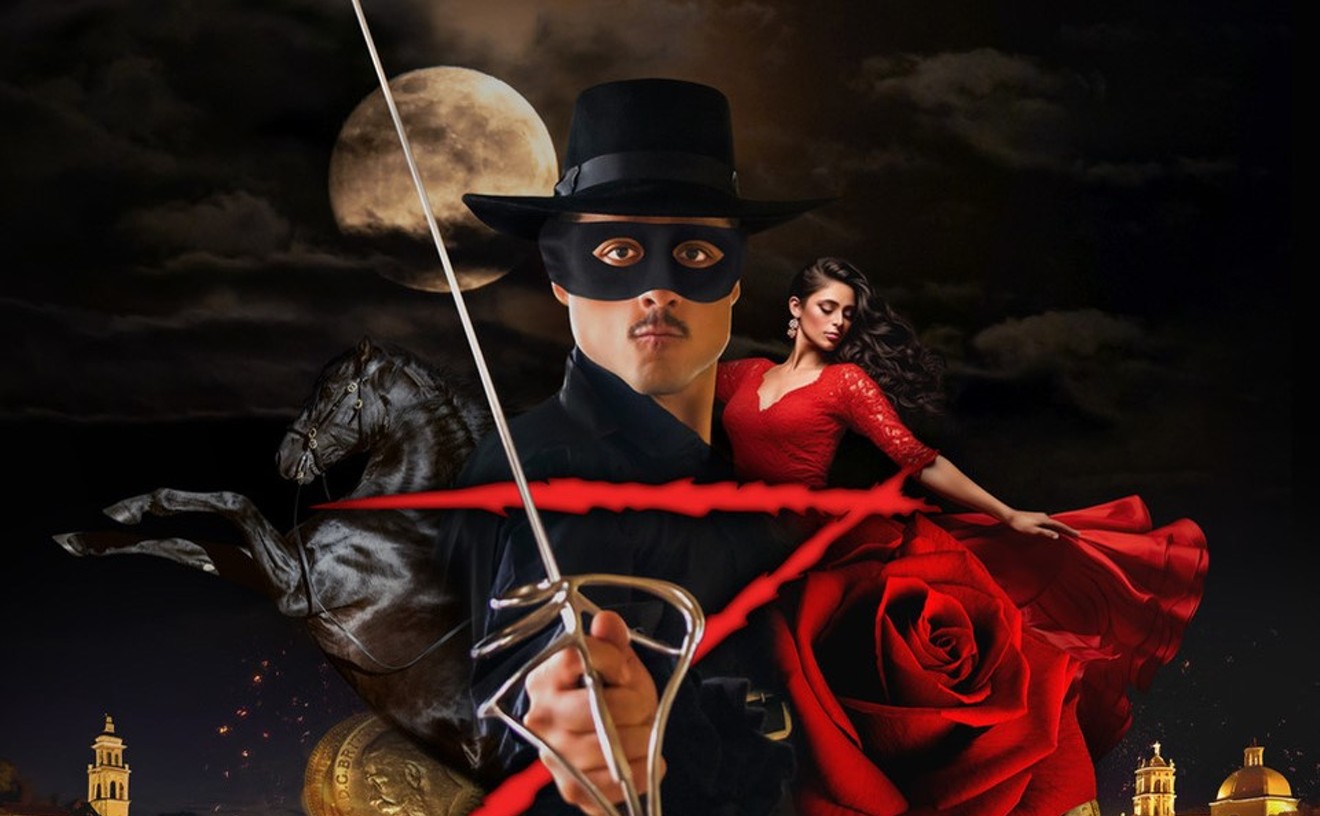Love Letters is frequently produced by church groups on Valentine's Day, or as a fund raiser for an ailing theater company, or -- most often -- when a small troupe loses the rights to a show at the last minute. Scottsdale Stagebrush Theatre's excuse for trotting out this treacly retread is that half of the two-person cast of Sleuth, which was originally slated to open this week, came down sick and couldn't go on. Woo-hoo. Lucky us.
Love Letters is a popular quick fix not just because it presumably draws crowds but because it requires next to no direction, set design or real talent to pull it off. Two actors, one male and one female, sit at desks and read love letters straight from the script; aside from the occasional arched eyebrow or mimed letter writing, there's very little acting involved. (That said, Stagebrush has managed to lure some better-than-decent talent for its last-minute fix: Both Jon Gentry and D. Scott Withers will be reading the male lead on different weekends. For unfathomable reasons, most productions of Love Letters swap out the cast each weekend during the show's run, and Stagebrush is no exception.)
This isn't a legitimate play so much as a theatrical Band-Aid; in fact, in Gurney's published introduction to the play, he writes that Love Letters came about when he was trying to teach himself to type. Which makes sense, because Love Letters is about as much fun as a typing exercise. It's the story of Andrew and Melissa, who meet when they're tiny and fall in love. They go off to different boarding schools, grow up, and marry other people, but never stop lusting after each other. They also never stop writing fatuous letters to each other, and we get to hear every last one of them during this long, sleepy two-act, a play that always, no matter how many times I've seen it, makes me want to slit my wrists.
That's mostly because Gurney, one of our most talented playwrights, has written a play in which two hugely unlikable characters read their mail to us for two hours. Melissa is little more than another snotty poor-little-rich-girl who's taken to drink; Andrew is just another WASPy white-bread fellow so one-dimensional he could be anybody. And neither of these people writes a particularly entertaining letter. Trust me -- those circulars you receive promising no-interest home loans are more stimulating.
I like a nice, sentimental stage romance as much as the next guy, and Love Letters dive-bombs schmaltz like a vulture after a bunny rabbit. But the only thing I like about Love Letters is that gay men often star in it, and the only thing more fun than watching a homo change a tire is watching him play a straight guy. But even the thought of watching a bunch of Mariannes try to butch it up isn't going to get me over to Stagebrush this weekend.
"Well, what would you have done?" one local publicist jeered when I asked why Stagebrush had bothered to cram Love Letters into the hole left by Sleuth. "Lock the doors," I told her. "Refund the tickets. Anything but ask people to listen to a staged reading of a truly boring play." But no one's listening to me.
E-mail [email protected]










